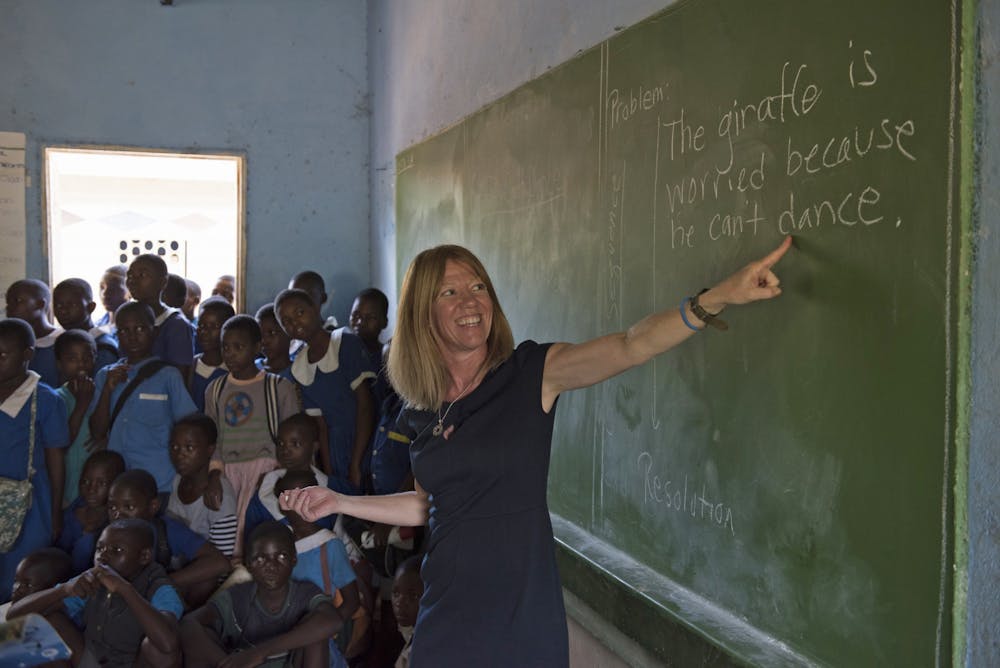Welcome back to another blog post on Drink the Coffee. Teach the Things!
Grab a cup of coffee and enjoy!

First Sip Story: I am helping my CT acclimate the students to using Seesaw as a literacy center choice during guided reading time. There is one available activity where the student focuses on one sight word and does various activities with that word like, tracing it, typing it, circling the word, etc. The last step in the activity is to record themself saying the word. So, one day I was going through the submitted Seesaw activities and every student just said the word into the microphone, except for one student who sang the word to the tune of Happy Birthday!! I loved his song so much that during circle time, I asked him to share his "him" song with the class, and not before long the whole class was singing the word him. Kindergarteners are the best!!
Advocacy.
This is a word that I have been thinking a lot about since our Thursday discussion about modified and alternative standards and assessments. There are so many nuances within the regulations of who uses the Standard Course of Study and who uses alternative standards, the extended standards. It really is up to the special education teacher to fully understand and be able to apply their knowledge of these nuances in order to provide FAPE in the student's LRE. This seems daunting because there is so much to know, and I would feel terrible to be under-informed or misinformed, which would ultimately effect the success of my student. And with the knowledge and application skills comes the teacher's ability to advocate for their students. This is the piece of the special educator's job that seems to be the most crucial, but also the most difficult. It takes courage to stand up for students. But I ultimately feel that it is our responsible to advocate for the needs and strengths of the students, regardless of the pressures from administration, or the judgement from other teachers. To hear that families were weary that their student's situation was treated in a binary, black or white, way is troubling. Our students are entitled to an education that is tailored to their needs, and by being so rigid about student placement, how can we ensure that every student's individual needs are actually being met. The comments we discussed in class were proof to me that the teacher may not have been working closely with the family to advocate for an individualized approach to their student's education.
Advocacy is also something that I feel that I cannot just learn by reading or talking about it. The more experience I have working in the field, I feel my advocacy skills will develop. As someone who is very interested in working in inclusive classrooms, I hope I am placed in situations that prompt me to defend my student's rights and work to collaborate with others to find a happy meeting place for all stakeholders involved.
Community.
Community is also a word that has been front and center in my mind. Having a strong community of stakeholders only supports advocacy for the students, since there is power in solidarity. Teacher's have heavy, important jobs that require a supportive community not only in the grade-level, building, and school district, but also through digital learning communities and conference environments. The stronger the community that a teacher belongs to, the more supported they will feel while advocating for their students.
I witnessed and experienced a strong community last week, after hearing about the death of Dr. Justice. While the day was filled with tears and mourning, I never felt alone. The School of Education rallied and lifted each other up as we all collectively dealt with her tragic death. And since I knew that my community was hurting, I felt the grief even deeper. But that is part of belonging to a community- education-related or not.

Comments
Post a Comment